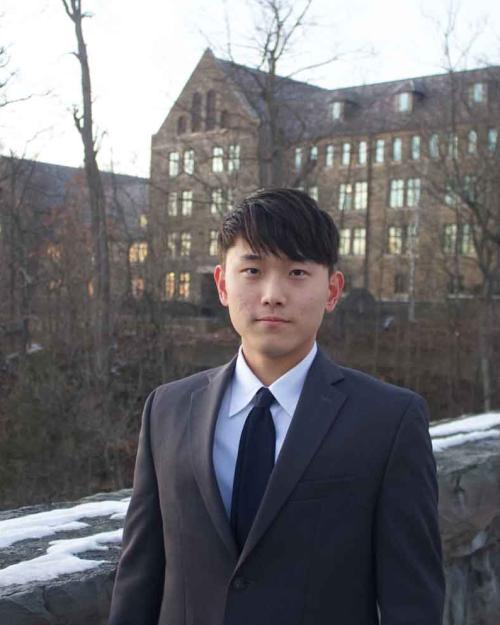Akimasa Ihara ’23 is one of 100 students from four countries chosen for a new fellowship that will provide $50,000 toward his graduate school education.
Ihara, a physics major, has focused his research on experimental quantum computing, a technology he says has the potential to solve some of the world’s biggest problems, from climate change to disease.
“We don’t know the applications of quantum computers because they haven’t been developed yet,” he said, “but since many of these systems, such as viruses and cancers, must be understood in the context of the complex interactions between molecules, which are quantum systems, we are better able to simulate them – and understand them – on quantum computers than we can on classical computers.”
The Quad fellowships were created by Australia, India, Japan and the United States to build ties among the next generation of scientists and technologists. The Schmidt Futures, a philanthropic initiative, operates and administers the fellowship program, which supports students from these countries who will be studying science, technology, engineering and mathematics in graduate school.
Along with the financial assistance, Quad fellows take part in a summer residential program, where they meet and work with other fellows before beginning their graduate study. They also have access to virtual resources, programming and support during the program, and even after they graduate as alumni.
“This program focuses on the social good that can come from interactions between science and policy,” Ihara said. “Learning how other fellows are bettering the world through physics, math and other sciences is something I’m excited to learn about.”
Ihara has long been active in work that help others – he participated in a Cornell startup that created educational song lyrics for popular songs, tutored other college students and works with refugee children in Japan through an organization called Support 21.
Ihara’s interest in quantum computing began his junior year when he took an intro class on quantum computing, which led him to join the lab of Peter McMahon, assistant professor of applied and engineering physics in the College of Engineering.
Ihara then spent the spring semester of last year studying abroad (and the summer working) at the University of Oxford. While initially focused on theoretical quantum computing, his summer work also involved experimental work with barium ions in Oxford’s trapped ion lab.
“At the end of two months, I was able to get some sensible results to simulate the excitation spectrum of the laser ion system,” he said. “I think they’ve been using my simulation to troubleshoot in further research.”




